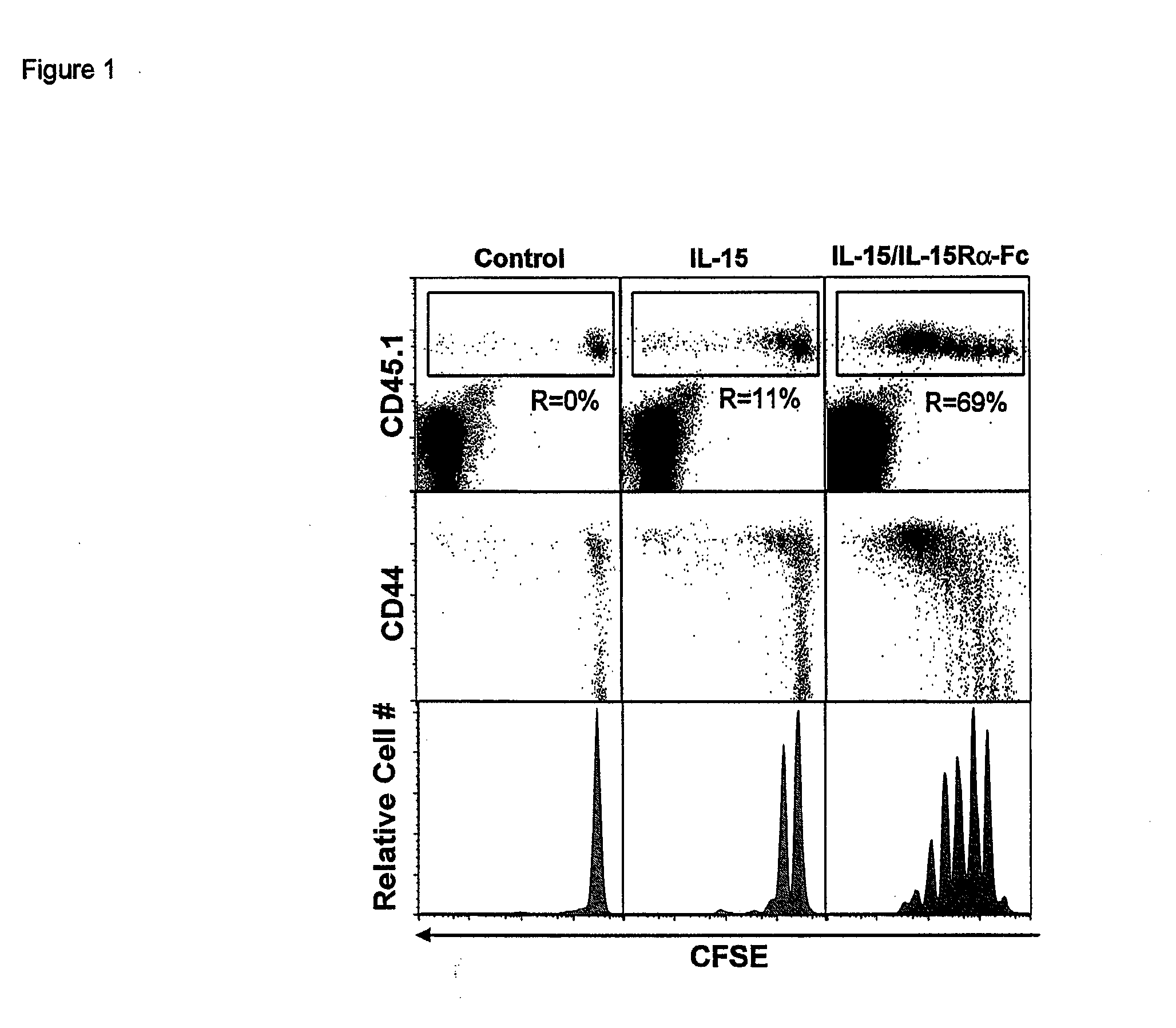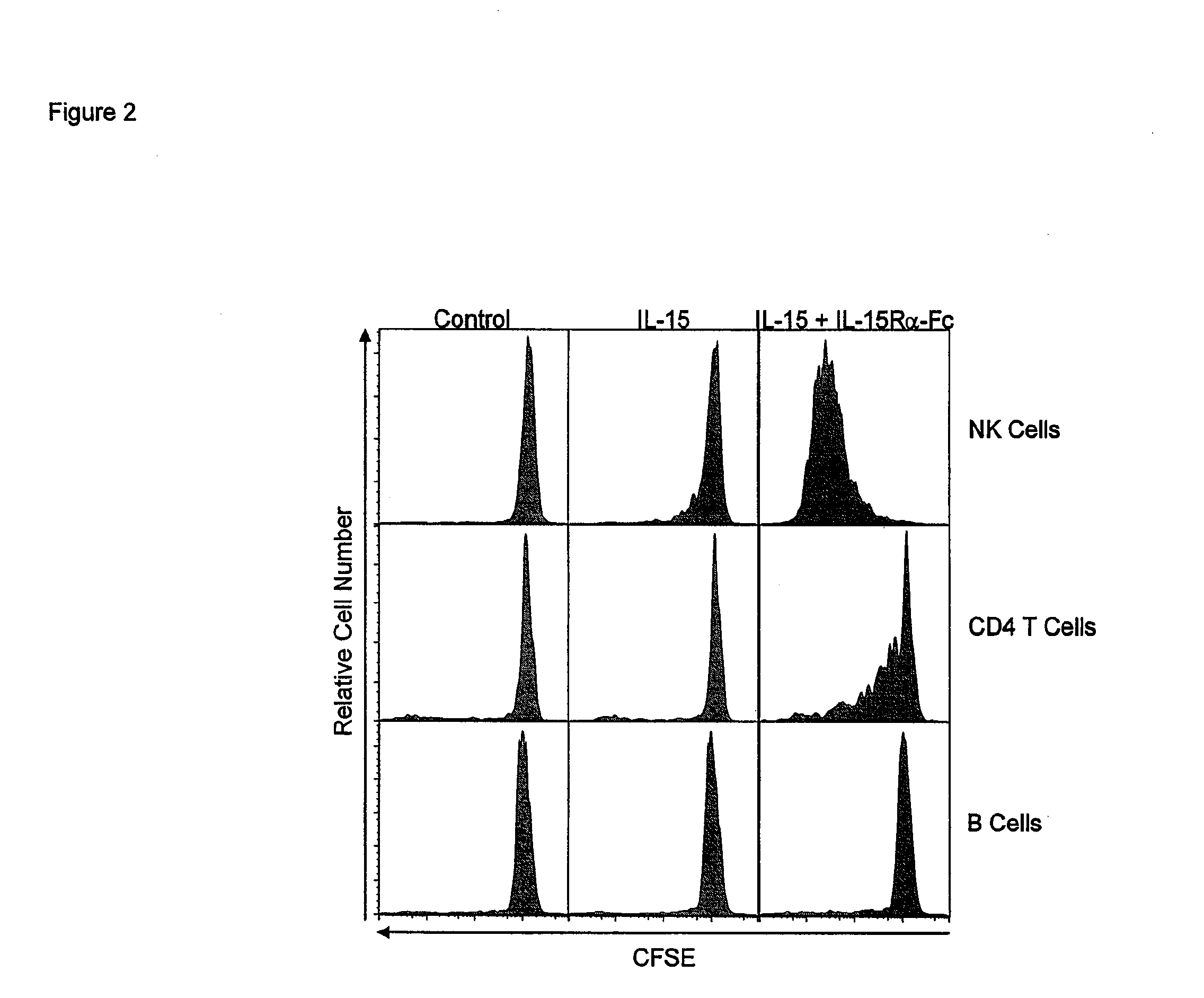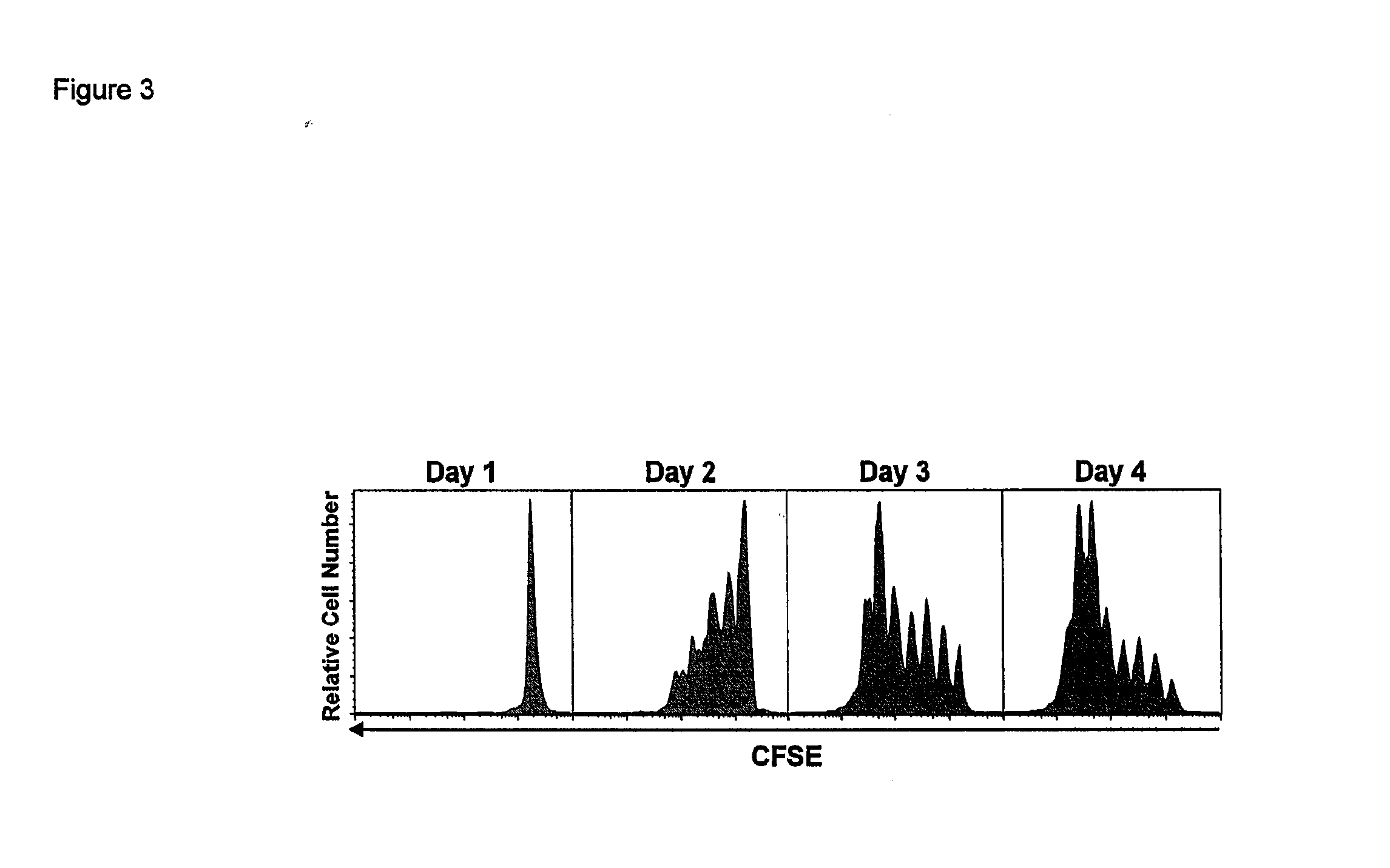Compositions and Methods for Immunomodulation in an Organism
a technology of immunomodulation and composition, applied in the direction of peptide/protein ingredients, immunological disorders, extracellular fluid disorders, etc., can solve the problems of high expression of il-2ra in tumors, poor prognosis for patients, and difficult detection of il-15 at the protein level, so as to improve half-life and bioavailability
- Summary
- Abstract
- Description
- Claims
- Application Information
AI Technical Summary
Benefits of technology
Problems solved by technology
Method used
Image
Examples
example 1
[0194]Co-Administration of IL-15 and IL-15Ra Drives CD8 Memory T Cell and NK Cell Proliferation In Vivo
[0195]In order to determine whether co-administration of IL-15 and recombinant mouse IL-15Ra-Fc (rmIL-15Ra-Fc) could mediate IL-15 activity in vivo, we utilized an adoptive transfer model to gage the effect of IL-15 on the proliferation of CD8+ T cells. CD45.1 CFSE labeled enriched splenic CD8+ T cells were transferred to normal CD45.2 mice and rmIL-15Ra-Fc (about 15 μg). Four days after treatment with IL-15 alone, about 11% of the donor CD8+ T cell population had divided (FIG. 1a, top panels), in agreement with our previous results. In dramatic contrast, the coadministration of the same amount of IL-15 bound to rmIL-15Ra-Fc resulted in the proliferation of about 69% of the donor CD8+ T cells (FIG. 1). Furthermore, while the majority of CD8 T cells responding to IL-15 alone divided once, the cells responding to combination treatment underwent 5-7 divisions, resulting in a substanti...
example 2
[0197]Complexed IL-15 / IL-15Ra Greatly Enhances IL-15 Activity In Vivo
[0198]We next examined the early kinetics of the proliferative response to the coadministration of rmIL-15Ra-Fc with IL-15. CFSE dilution was negligible one day after treatment, but by day two about 36% of the donor CD8+ T cell population had divided, with an appreciable number of cells in the third and fourth rounds of division (FIG. 3). By day three about 59% of donor CD8+ T cells had divided with many cells in divisions 5-6, while about 73% had divided by day four with some cells in the seventh round of division. These results and others showed that the maximum effect of a single dose of IL-15 / mL-15Ra-Fc was achieved by approximately 4 days post-treatment, followed by the donor CD8+ T cells entering a protracted rate of proliferation characteristic of memory CD8+ T cells (data not shown).
[0199]In order to obtain an approximation of the enhancement of activity obtained by combined treatment over that of IL-15 alo...
example 3
[0200]Complexed IL-15 / IL-15Ra Operates Via Transpresentation Requiring IL-15Rb
[0201]The effects of complexed IL-15 / IL-15Ra could either be mediated by direct or indirect effects on the responding cell types. If direct, then it might be expected that the target cells would be required to express IL-15R component(s). To test this, we transferred CFSE-labeled IL-15Ra− / − CD8+ T cells into IL-15Ra− / − hosts and treated the mice with either IL-15 or complexed IL-15 / IL-15Ra. IL-15 could not be transpresented in the absence of IL-15Ra, and did not induce proliferation (FIG. 5a). On the other hand, donor CD8+ T cells from IL-15 / mL-15Ra-Fc treated mice proliferated extensively. Furthermore, the IL-15Ra− / − donor cells, which primarily consisted of naïve phenotype CD8+ T cells, progressively increased their expression of CD44 and CD122 with division. Since responding T cells did not require IL-15Ra to respond to complexed IL-15 / IL-15Ra, we examined the role of IL-15Rb (CD122) in mediating this e...
PUM
| Property | Measurement | Unit |
|---|---|---|
| time | aaaaa | aaaaa |
| size | aaaaa | aaaaa |
| molecular mass | aaaaa | aaaaa |
Abstract
Description
Claims
Application Information
 Login to View More
Login to View More - R&D
- Intellectual Property
- Life Sciences
- Materials
- Tech Scout
- Unparalleled Data Quality
- Higher Quality Content
- 60% Fewer Hallucinations
Browse by: Latest US Patents, China's latest patents, Technical Efficacy Thesaurus, Application Domain, Technology Topic, Popular Technical Reports.
© 2025 PatSnap. All rights reserved.Legal|Privacy policy|Modern Slavery Act Transparency Statement|Sitemap|About US| Contact US: help@patsnap.com



